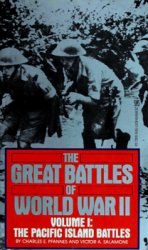As Alexander moved eastwards his own position became less secure. His men had achieved victory beyond their wildest dreams and they had little stomach for further marches into the unknown. Tension grew among the army commanders and Alexander became increasingly impatient with it. In the autumn of 330 he accused the brilliant but overbearing leader of the cavalry, Philotas, of conspiracy to murder him. The army was bullied into voting for his torture and execution. Philotas’ father Parmenion, one of Philip’s most seasoned commanders, who had consistently opposed what he saw as Alexander’s recklessness, was also assassinated on Alexander’s orders. The cavalry was gradually reorganized so that the power of individual commanders was reduced, and Alexander began to rely on local mercenaries rather than sending back to Macedonia for reinforcements.
The next two years saw campaigning of a very different nature. Alexander had reached the remotest reaches of the empire, the provinces of Bactria and Sogdiana, roughly modern Afghanistan, and there were new, intense stresses on his men. The heights of the Hindu Kush were crossed in April 329 with men suffering from frostbite and breathlessness. They then had to march over 80 kilometres of desert before reaching the Oxus river, where many died from sudden overdrinking. Alexander’s adversary was Bessus, who had proclaimed himself the new king of Persia. He was eventually hunted down, and taken to the city of Bactra to have his nose and ears mutilated, the traditional punishment for a usurper of the Persian throne, before being sent back to Ecbatana for execution.
This region was unstable, and local magnates bitterly resented the intrusion of Alexander and his army. While Alexander was campaigning along the north-eastern borders of the empire, there was a massive insurrection in the satrapy of Bactria to the south. This region was ideal for guerrilla warfare. The insurrection spread, and for the next two years Alexander was tied up in a series of campaigns against local pockets of resistance. As ever, Alexander showed his inventiveness and flexibility. His archers and javelin men came into their own against the bands of nomadic tribesmen who circled the Macedonian armies. Even the most impregnable of citadels fell to his tactics. One noble, Ariamazes, thought himself invulnerable in his mountain fortress until Alexander sent 400 mountaineers to take it from above. However, the final conquest of the region was marked by scenes of terror as the entire male populations of captured cities were massacred and their women and children enslaved. Ten thousand infantry and 3,500 horsemen had to be left in Bactria to keep order, and a string of military garrisons was established. In a more constructive move, 30,000 young men were taken to be taught Greek and trained for Alexander’s armies. Bactria was to become and remain an enclave of Greek culture for centuries to come (but see earlier, pp. 13-15). It was also here that Alexander selected a wife for himself, Roxane, daughter of Oxyartes, a local noble. The relationship has been idealized in legend but Alexander was far too single-minded to be lured into romantic attachments.
The combined effects of the stresses of the campaigns and Alexander’s own personality were now causing serious problems within his court. When the army was resting at Maracanda (the modern Samarkand) in the autumn of 328, a row broke out at a drunken banquet, between Alexander and the cavalry commander Cleitus, who had saved Alexander’s life at the Granicus. It was said that Cleitus taunted Alexander. Alexander in response seized a weapon and struck Cleitus down.
The row concealed more deep-rooted tensions. The Macedonian kingship was one in which personal loyalty to the king persisted alongside a rough camaraderie. The king was not removed from his commanders—he ate and drank, often heavily, alongside them. The tradition of the Persian monarchy was very different. Here the king lived in ostentatious splendour and even the most senior of his courtiers were treated as subjects. The whole approach was symbolized by the act of proskynesis, a traditional obeisance of a subject before his king. Alexander, whose temperament was always autocratic, had now begun to insist on this for himself. The Macedonian commanders, already resentful of the way that Alexander had appropriated all credit for military success to himself, deeply resented submission to what was for them a humiliating ritual. Their open opposition was such that Alexander gave way but hostility lingered and gave rise to an assassination plan by his closest attendants. The plan was discovered, the pages involved executed. They were followed by the historian Cal-listhenes who had offered the most articulate condemnation of proskynesis.
The tension was increased by Alexander’s refusal to turn back. Still ahead of him lay India. Knowledge of the region was shadowy. Nominally it had been part of the Persian empire and there had been elephants from the Kabul valley in Darius’ army at Gaugamela. The Greeks had myths that both Heracles and Dionysus originated in India, and Alexander may have been spurred on to equal their exploits. In 327 he crossed the passes of the Hindu Kush and down through the Cophen valley. It was a progress marked by terror. Any city that resisted was stormed and its men massacred. The valley, the corridor between India and the west, had to be held by whatever means. Only one city, known to the Greeks as Nysa, was spared after a successful claim that it was no less than the birthplace of the god Dionysus!
The wealthy kingdoms of India were now within the reach of Alexander. The Indus river was crossed amidst great celebrations and games in the spring of 326. Alexander was welcomed by the ruler of the state of Taxila, whose motives appear to have been to use the Macedonians to defeat rival princes further east. The bait worked. Hearing news that one of them, Porus, was prepared to resist him from behind the river Jhelum (Greek: Hydaspes), a tributary of the Indus, Alexander hurried eastwards before the melting of the winter snows and imminent monsoons made the river impassable.
The Battle of Hydaspes proved one of Alexander’s most crushing victories. The challenge lay in crossing a river that was well guarded by Porus’ troops. Alexander succeeded by crossing during a thunderstorm, and his men landed virtually unopposed. He now faced 20,000 Indian infantry, 2,000 cavalry, and a mass of elephants that could be stampeded into the Macedonian ranks. The Macedonian cavalry charged the Indian and forced it back into the infantry. The Macedonian infantry now advanced in superb discipline. They opened their ranks as the elephants charged and then jabbed at them with their sarissae. The crazed animals stampeded back into their own lines, trampling down anyone caught in the way. The Indian infantry was now slaughtered, only a few breaking through the Macedonians to escape. Porus was captured, still seated on an enormous elephant but wounded and almost alone on the battlefield. Alexander, impressed with his courage and physical presence, confirmed him as ruler of his kingdom.
Buoyed up by yet another victory Alexander forced his men on. There were legends of rich kingdoms to the east, but the monsoons had now started. By the time the army reached the river Hyphasis (today’s river Beas) it had endured seventy days of continuous heavy rainfall and was close to mutiny. For the first time in his life, Alexander accepted defeat. He claimed that a sacrifice had shown the gods did not want him to continue further and ordered the retreat. There was a jubilation in the ranks which Alexander was never to forget or forgive.




 World History
World History









